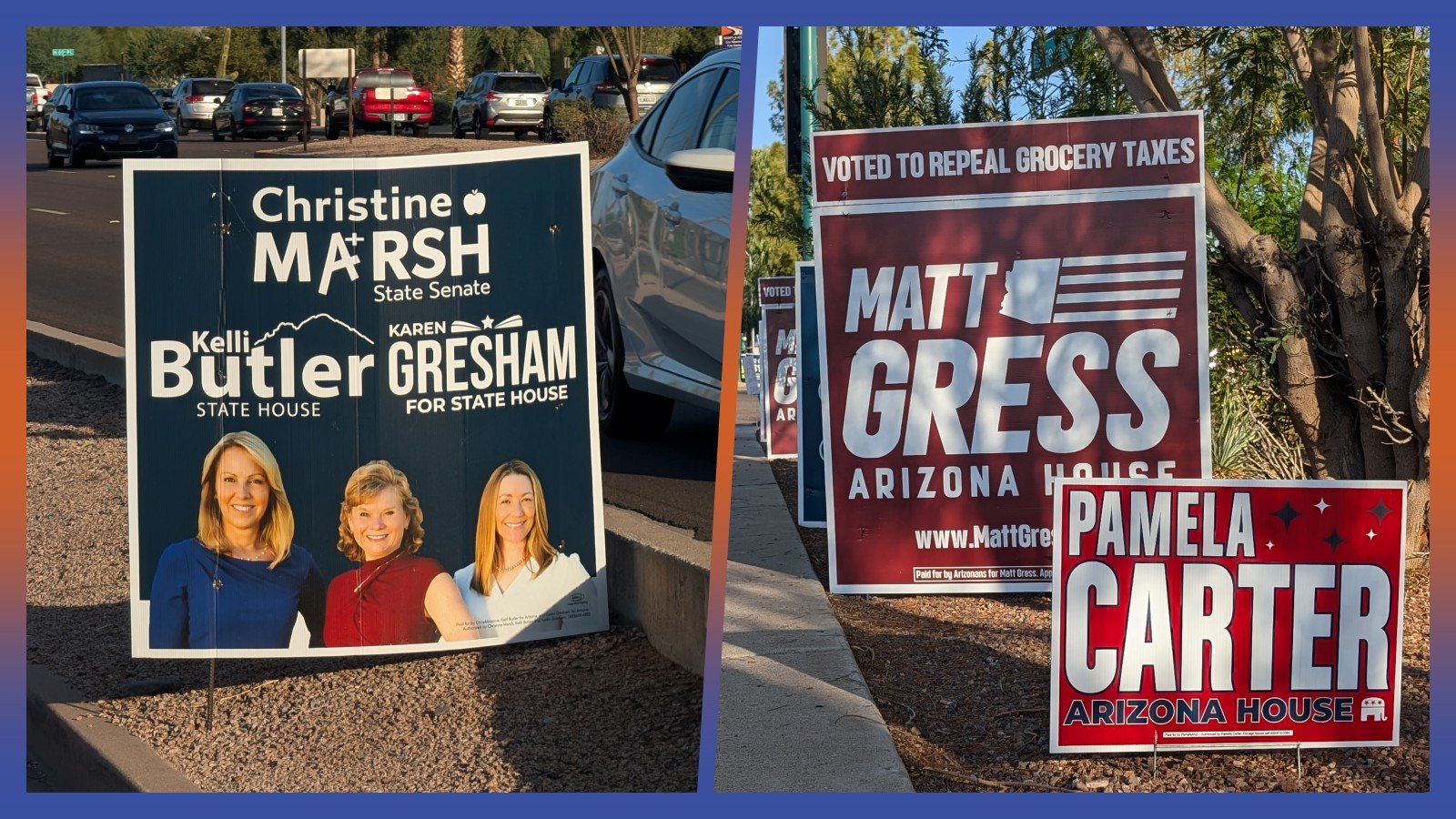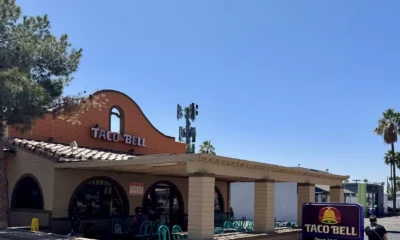2024 election
Democrats Target Two Key Seats in Affluent Northeast Valley District

In Arizona’s Legislative District 4, Rep. Matt Gress, a GOP incumbent, is facing a critical challenge as he strives to appeal to moderate voters while Democratic opponents target his record on abortion and gun control. The race’s outcome may significantly impact the balance of power in the Arizona legislature, which Republicans have held for over 60 years.
Gress, who previously served as budget director under Republican Gov. Doug Ducey, aims to maintain his seat in the face of competition from former state Rep. Kelli Butler and Madison Elementary School Board President Karen Gresham. The 2022 election saw Gress emerge as the leading vote-getter in a contest featuring Laura Terech, who has since resigned.
District 4 encompasses parts of northeast Phoenix, Scottsdale, and Paradise Valley. It has been classified as a highly competitive district that leans Republican, according to the Independent Redistricting Committee’s 2021 map.
Butler and Gresham have criticized Gress for his stance on abortion, especially after he celebrated the U.S. Supreme Court’s decision to overturn Roe v. Wade and supported several fetal personhood bills in the state House. These measures aimed to extend legal rights to fetuses, including allowing women to seek child support from the date of a positive pregnancy test and increasing penalties for domestic violence against pregnant individuals. Gresham emphasized the dangers of these proposals in an interview.
Gress defends his bills, asserting they were designed to aid women and families, drawing from his own experiences growing up with a single mother. However, critics, including members of his party, argue his actions are politically motivated. While Gress supported the repeal of an 1864 abortion ban after a recent Supreme Court ruling, his position drew ire from staunch conservatives.
Gress acknowledges supporting Arizona’s current 15-week ban on abortion while expressing a desire to add exceptions for rape and incest. His comments reflect a strategy to navigate public sentiment, as many Arizonans disfavor more restrictive laws.
This election cycle is further complicated by ballot initiatives like Proposition 139, which aims to enshrine abortion rights in Arizona’s constitution. Butler and Gresham are pro-choice advocates backing this initiative, while Gress and his fellow GOP candidate, Pamela Carter, have more conservative views.
Carter, a Christian minister, has a history of opposing abortion rights and has faced criticism regarding family support claims during her campaign. In contrast, Gress has outpaced his opponents in fundraising, significantly boosting his campaign efforts.
As Republicans hold a precarious one-seat majority in the Arizona House, the stakes in District 4 are particularly high. Democrats are eager to capture both chambers, particularly with Gov. Katie Hobbs fostering an environment that could lead to significant political change.
Education funding emerges as a pivotal issue, with Butler and Gresham advocating for increased resources in a state historically ranked low in educational investment. Gress has proposed measures for teacher salary increases but faces scrutiny for not addressing all educational staff.
Public safety, particularly around gun control, is another contentious area. Both Butler and Gresham are pushing for mandated secure storage and universal background checks, while Gress has voted in favor of more permissive firearm policies.
As the campaign unfolds, all candidates aim to appeal to the substantial independent voter base in District 4. Butler highlights the need for bipartisan solutions to local issues, while Gress emphasizes a pragmatic approach to critical concerns like housing and community well-being.
The upcoming election in District 4 represents a crucial battleground for Arizona’s political landscape, with potential implications for statewide governance in the coming years.

















